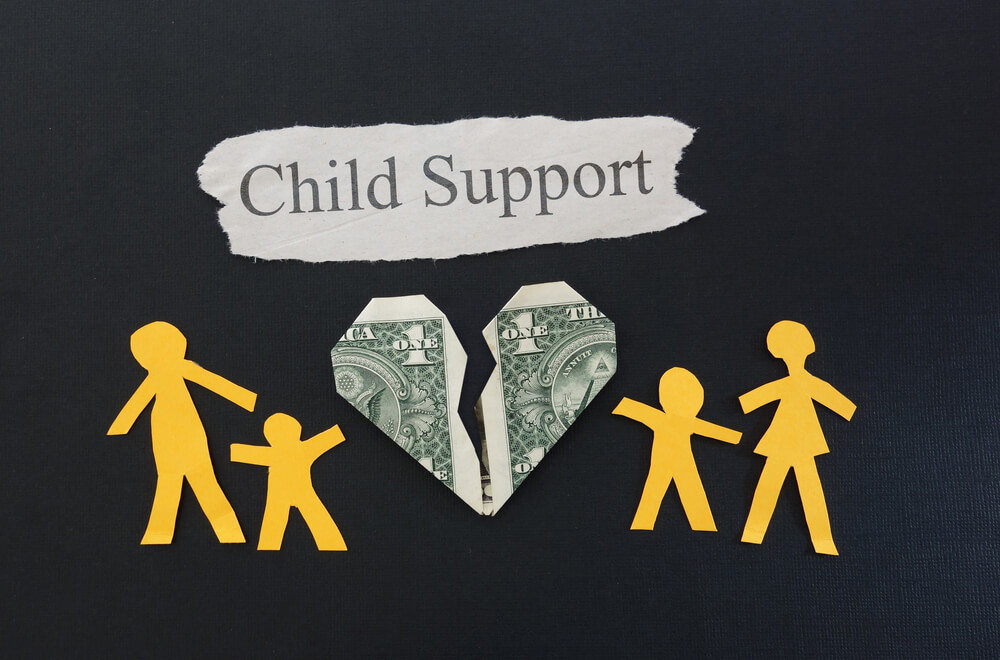Divorce can be challenging and emotionally charged, especially when children are involved. As parents, we are responsible for ensuring our minor children’s well-being, including providing them with the financial support they need.
Married couples usually fulfill this duty by supporting their children together. However, a court will step in to determine child support payments when a couple goes through a divorce, legal separation, or annulment.
In Minnesota, this process is governed by specific guidelines and factors that aim to ensure fair and adequate support for the children.
Determining Child Support

The court follows a specific process to determine the child support obligation of each parent after divorce. Let’s break down the steps involved:
- To start, the court first assesses the gross income of each parent from various sources.
- After determining the gross income, the court subtracts any applicable credits for non-joint children from each parent’s gross income. This step helps account for the financial responsibilities of parents towards their children from previous relationships after divorce.
- Next, the court calculates the percentage contribution of each parent to the combined parental income for determining child support (PICS) by dividing each parent’s PICS by the total combined PICS of both parents.
- The court then applies the child support guidelines, which are predetermined calculations based on the parent’s combined income and the number of children. These guidelines provide a baseline for determining the basic support obligation. The guidelines also consider the childcare expenses for the child, healthcare expenses, and the number of overnights each parent spends with the child. This is discussed in more detail below.
- Using the percentage figure obtained in step three, the court determines the obligor’s share of the basic support obligation. This is calculated by multiplying the percentage figure by the combined basic support obligation determined in step four.
If you have questions about child support, it is important to consult with a professional attorney who can discuss your specific questions.
Calculating Gross Income
Gross income refers to any regular payments received by an individual. It encompasses various income sources that include:
- Salaries
- Wages
- Commissions
- Earnings from self-employment
- Veteran’s benefits
Any contributions made to health savings accounts, retirement accounts, or deductions for insurance programs are generally not considered when calculating gross income.
In the case of self-employment, gross income is often calculated by assessing the gross receipts minus the cost of goods and the necessary expenses required for business operation. Furthermore, potential income that is expected but has not yet been received is also taken into account.
Methods for Determining Potential Income
A parent may be voluntarily unemployed, underemployed, working part-time, or there may be no direct evidence of their income. In that case, the child support calculation is based on potential or “imputed” income. This means the court determines the income that the parent could reasonably earn considering various factors.
There is a presumption that a parent has the ability to be gainfully employed full-time even after divorce. In determining potential income, the court considers the parent’s employment potential, recent work history, and qualifications for different occupations in view of the prevailing job opportunities.
Do Parenting Expenses Matter?
The parenting expense adjustment is an important factor in determining child support and involves deducting certain expenses from child support obligations. The adjustment considers various costs incurred by the parent when exercising their parenting time. It includes expenses for food, transportation, recreation, and household-related expenditures.
Generally, the more parenting time a parent has with the children, the greater their adjustment or reduction will be from their child support obligation. This recognizes that the parent with custody who spends more time with the children will bear a larger portion of the associated expenses.
What About Childcare and Medical Support?
A parent who incurs reasonable childcare expenses for work or education purposes is entitled to receive a contribution from the other parent. Childcare costs are adjusted by considering the estimated childcare tax credit payable on behalf of a joint child.
The parent who pays the expense directly to the childcare provider is entitled to claim this tax credit. Therefore the amount the parent receives as childcare support from the obligor is adjusted to reflect the anticipated tax credit.
A parent who provides health insurance is also entitled to receive a contribution from the other parent towards the cost of the insurance premium. The court will typically order that the cost of healthcare and any unreimbursed medical expense be divided between the obligor and the obligee. This is based on their proportionate share of the combined monthly PICS.
Deviations from the Child Support Guidelines
When determining child support, the court in Minnesota generally follows the child support guidelines. However, there are circumstances where deviations from these guidelines may be considered.
The court considers the income of both parents and their circumstances, including their financial resources and employment status. It assesses any extraordinary financial needs of the child, such as medical or special educational requirements as well as the child’s physical and emotional condition.
While recognizing that the parents are living apart, the court considers the standard of living the child would have enjoyed if the parents were still together. It considers whether the child resides in a foreign country for more than one year and if the cost of living in that country substantially differs from that in the United States.
The court also examines which parent receives the income tax dependency exemption for the child. It considers both parents’ debts and liabilities that may affect the ability to support the child. Sometimes the obligor’s total payments for court-ordered child support may exceed certain statutory limitations.
Need Legal Guidance for Child Support Matters? Turn to M. Sue Wilson Law Offices Today

Facing a child support issue in Minnesota? Seeking professional guidance and representation can make a significant difference in navigating the complexities of the legal system. At M. Sue Wilson Law Offices, we have experienced attorneys specializing in family law matters, including divorce, child custody, and child support. Let us guide divorcing spouses through this challenging process. Contact us today to take the first step toward resolving child support matters.
This article contains general legal information and does not provide legal advice. For legal advice, please contact M. Sue Wilson Law Offices directly.

